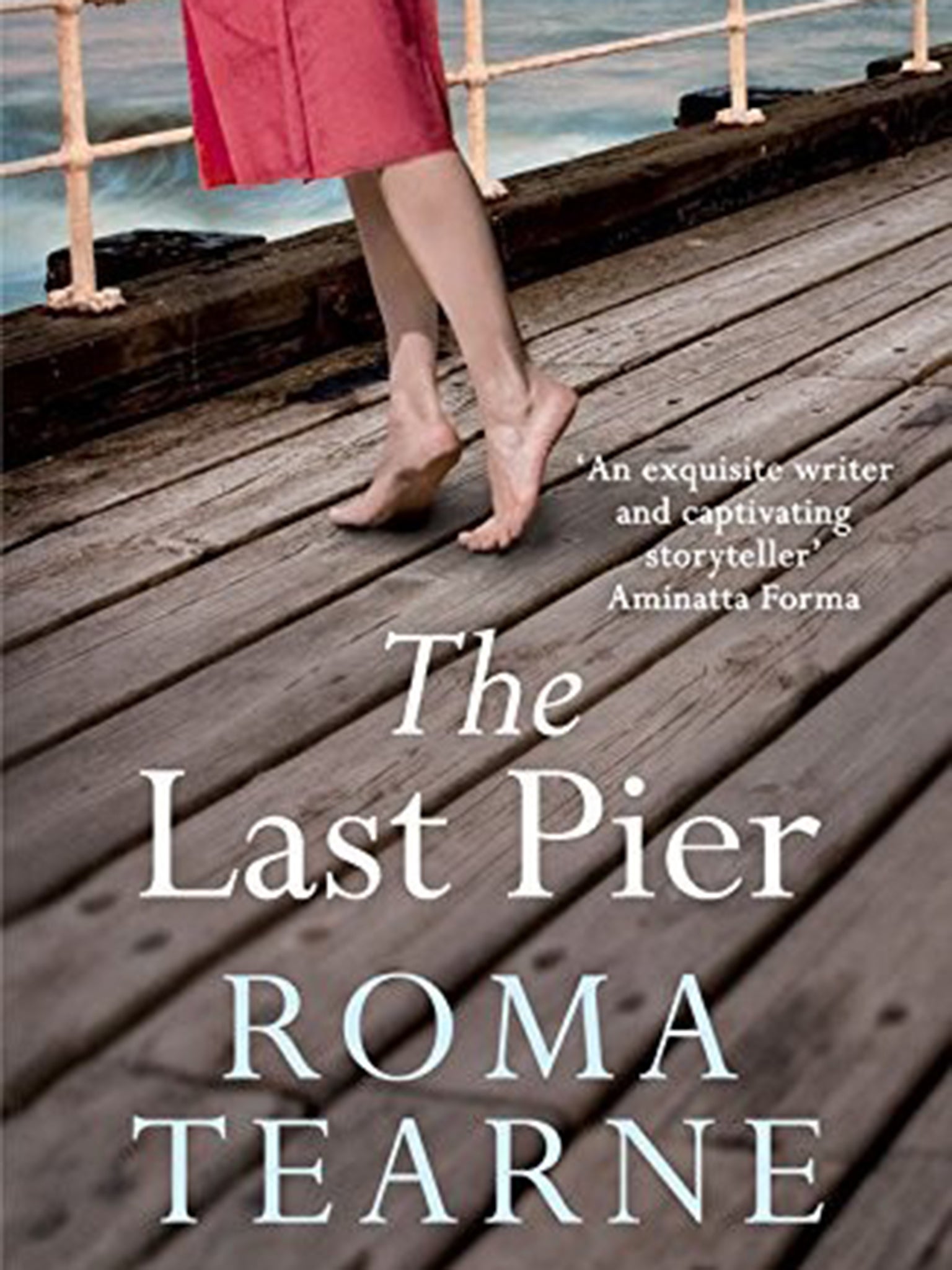The Last Pier by Roma Tearne - book review: A long, hot summer on the brink of the abyss
Tearne vividly depicts the devastating impact of war on ordinary lives

Born to a Sinhalese mother and Tamil father, Roma Tearne left Sri Lanka when she was just 10 years old. Displacement, exile and migration are frequent themes in her fiction so The Last Pier, focusing on an English family in Suffolk just before the outbreak of the Second World War, is something of a departure.
On the Maudsleys’ orchard farm in Bly, “a coastal backwater”, 13-year-old Cecily is curious about everything to do with her family and her surroundings. She is forever-listening behind doors or inadvertently hearing adults talk while playing outside. She yearns to be as beautiful and grownup as her 16-year-old sister, Rose, who has many admirers.
Cecily also has a secret crush on Carlo Molinello, youngest son of a local Italian family befriended by the Maudsleys. Things take a sinister turn when an outsider, Robert Wilson, arrives in their midst, claiming he is there to work on the agricultural survey for East Anglia and plan farming efforts in the event of a war. But why does he keep giving Cecily’s Aunt Kitty a bunch of seven Sweet Williams and why is Rose so scornful of his actions?
As she has done in previous novels, Tearne vividly depicts the devastating impact of war on ordinary lives. While the Maudsleys are forced to face a personal tragedy, an indirect consequence of the impending conflict, the Molinellos have to deal with the political fallout when war is declared. Originally from Tuscany, Anna and Mario Molinello have settled in Suffolk and own a successful ice-cream parlour. Despite swearing allegiance to their adopted country, Mario, his British-born sons, and his brother, Lucio, are treated as enemy aliens.
The Last Pier features a large cast although some characters are mere walk-ons. There’s a filmic quality to how Tearne circles around her subjects before moving in for the close-up. Often her characters’ hopes, desires and disappointments are revealed to us through what is unspoken.
“Children aren’t supposed to have feelings,” Cecily complains to her diary. Tearne writes perceptively about Cecily’s growing pains – her fragile sense of self, her desperate desire to catch up with her beautiful sister, her unexpressed love for Carlo, the vague unease she feels about her family – and how grief feeds guilt.
Children trying to make sense of adult lives while coming of age is a familiar story, but Tearne offers some unexpected twists and creates a palpable sense of some danger that’s lurking in the shadows. She also employs a dual narrative, almost 30 years apart, as Cecily returns to the family farm in 1968 in an attempt to make sense of her fractured childhood memories and to understand what actually happened during that long, hot August of 1939.
There are some typos and inconsistencies regarding dates and characters’ ages that an editor should have picked up, but this evocation of a world on the brink of change is so engaging that these minor slips are soon forgotten. The Last Pier is an atmospheric page-turner and Tearne keeps the reader guessing to the end as to the various fates of her characters.
The Good Tourist, by Lucy Popescu, is published by Arcadia Books
Hesperus £8.99
Join our commenting forum
Join thought-provoking conversations, follow other Independent readers and see their replies
Comments
Bookmark popover
Removed from bookmarks